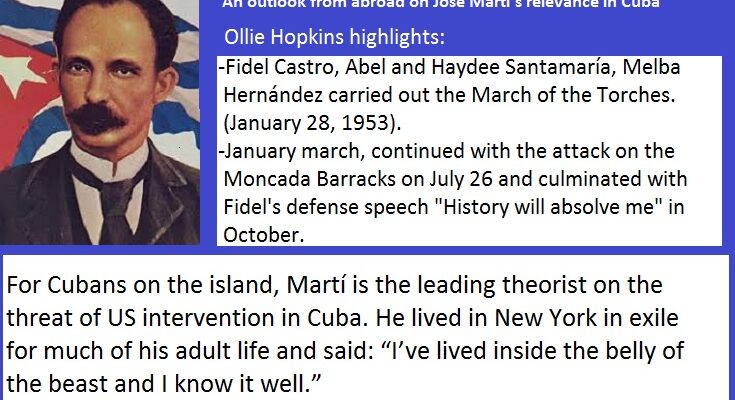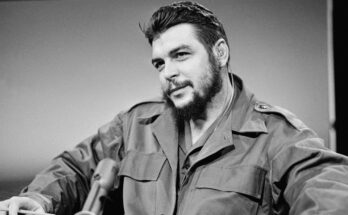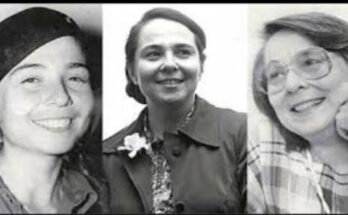In an article entitled ¨The soul of the revolution¨, Ollie Hopkins, British activist of the Cuba Solidarity Campaign in his country, among the many topics he addresses in his website https://cuba-solidarity.org.uk/ about Cuba puts forward a very deep work on the relevance of the legacy of our National Hero José Martí in today’s Cuba.
Hopkins highlights how Martí’s thought comes back to life in 1959, one hundred years after his birth, when the centennial generation guided its steps along Martí’s paths, and in homage to the Apostle, the young Fidel Castro, Abel and Haydee Santamaría, Melba Hernández and their companions carry out the March of the Torches from the University of Havana to the Martí Forge, where the terrible quarry of San Lázaro was located and where Martí, as a teenager, was condemned to forced labor by the Spanish rulers.
Ollie Hopkins considers that the centenary constituted a crucial year for the Cuban Revolution, considering that it began with the January march, continued with the attack on the Moncada Barracks on July 26 and culminated with Fidel’s defense speech “History will absolve me” in October.
According to the British activist’s view Fidel was the clinch seriously Martí’s ideas when even in prison he requested the Apostle’s writings. However, Fulgencio Batista’s regime banned the imprisoned Fidel from receiving Martí’s writings to prepare for his defense and also barred him from having any paper, which resulted in his entire speech being delivered from memory.
Hopkins goes further in his outlook on the relevance of Martí’s thoughts when he highlights Fidel Castro´s reference to José Martí as the “intellectual author” of the revolution while Che Guevara called him the revolution’s “mentor.”
The British activist underscores the Cuban National Hero’s warning on the US imperialist intentions over our America.
Martí wrote extensively on anti-imperialism, but his goal went beyond independence for Cuba from Spain or the US. He wanted to deliver social justice on the island “with all and for the good of all.”
“A wealthy nation is not one in which there are a few rich men but rather one in which every citizen has a small share of that wealth. Both in political economy and in solid government by distributing these things we make the people happy,” he wrote.
To deepen in the relevance of Martí’s thoughts in the revolutionary process in Cuba Hopkins goes further in his analysis:
The José Martí Cultural Society (SCJM) plays an important role in keeping alive his legacy and relevance in contemporary Cuba.
Rene Gonzalez, one of the Miami Five heroes, is vice president of the organisation. It’s role is to “sow the seed” of Martí in Cuban youth. “Every young Cuban has a Martí inside,” he says.
For Cubans on the island, Martí is the leading theorist on the threat of US intervention in Cuba. He lived in New York in exile for much of his adult life and said: “I’ve lived inside the belly of the beast and I know it well.”
This is the way Ollie Hopkins sees the relevance of José Martí’s thoughts in contemporary Cuba 129 after his death in combat on May 19, 1895.




